Alkaline Phosphatase (ALPI) Rabbit Polyclonal Antibody (Center)
产品基本信息
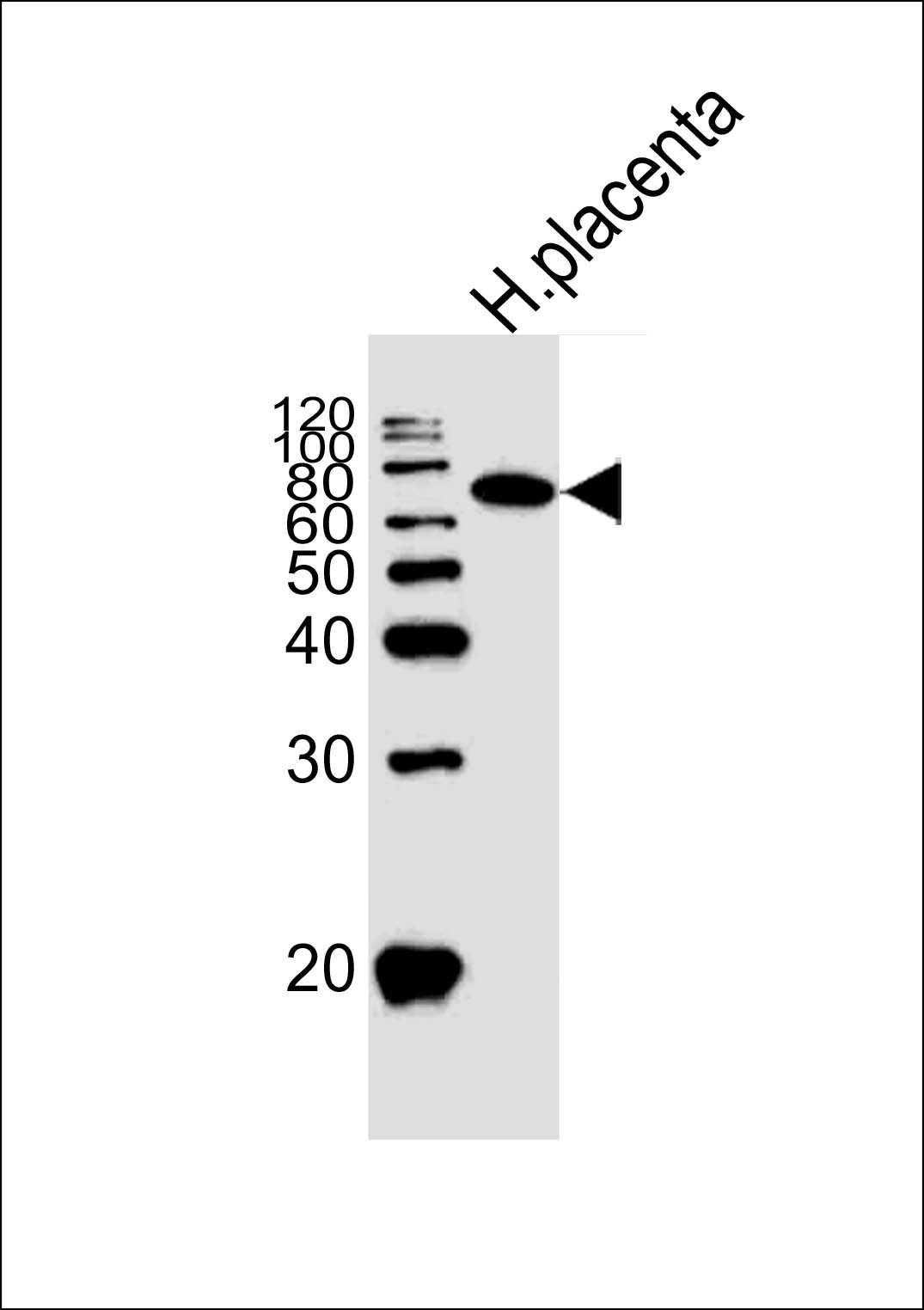
Western blot analysis of lysate from human placenta tissue lysate, using ALPI Antibody (Center)at 1:10000 dilution was used as the secondary antibody. Lysate at 20ug.
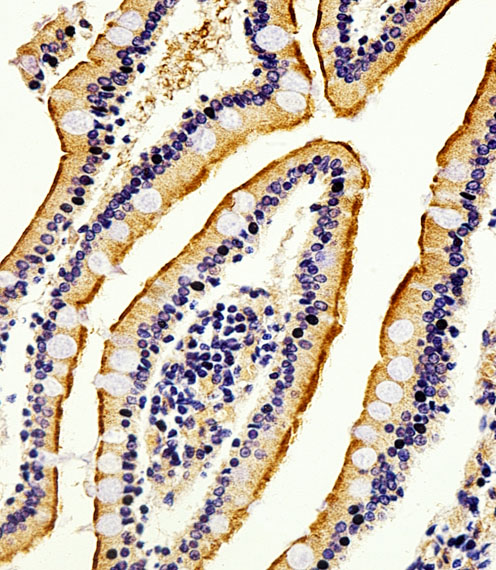
Immunohistochemical analysis of paraffin-embedded H. small intestine section using Alkaline Phosphatase (ALPI) Antibody(Center) . BD-PB4373 was diluted at 1:100 dilution. A peroxidase-conjugated goat anti-rabbit IgG at 1:400 dilution was used as the secondary antibody, followed by DAB staining.
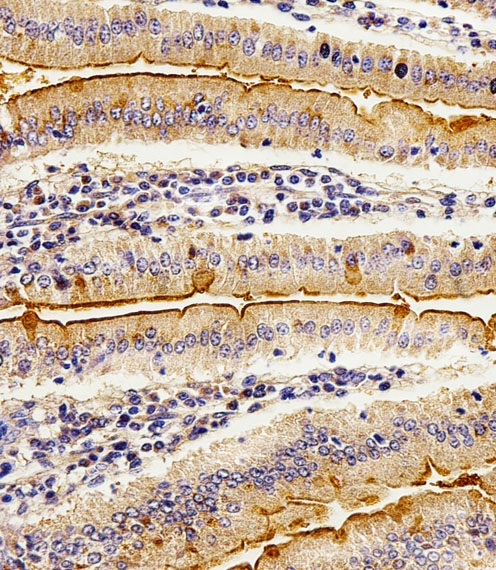
Immunohistochemical analysis of paraffin-embedded M.small intestine section using JAK2 Antibody(C-term). BD-PB4373 was diluted at 1:100 dilution. A peroxidase-conjugated goat anti-rabbit IgG at 1:400 dilution was used as the secondary antibody, followed by DAB staining.
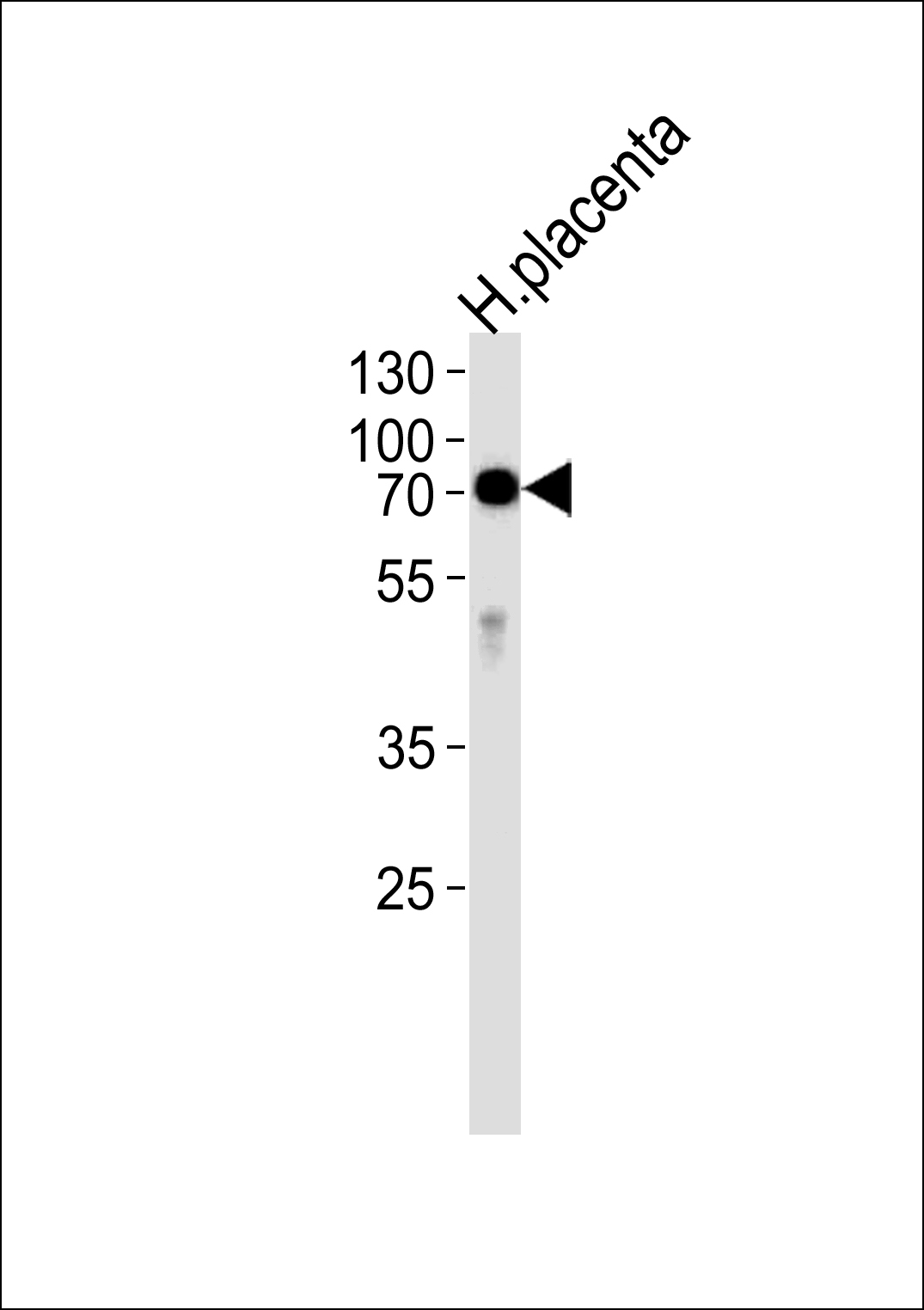
Western blot analysis of lysate from human placenta tissue,using ALPI Antibody (Center)at 1:5000 dilution was used as the secondary antibody.Lysate at 35ug per lane.
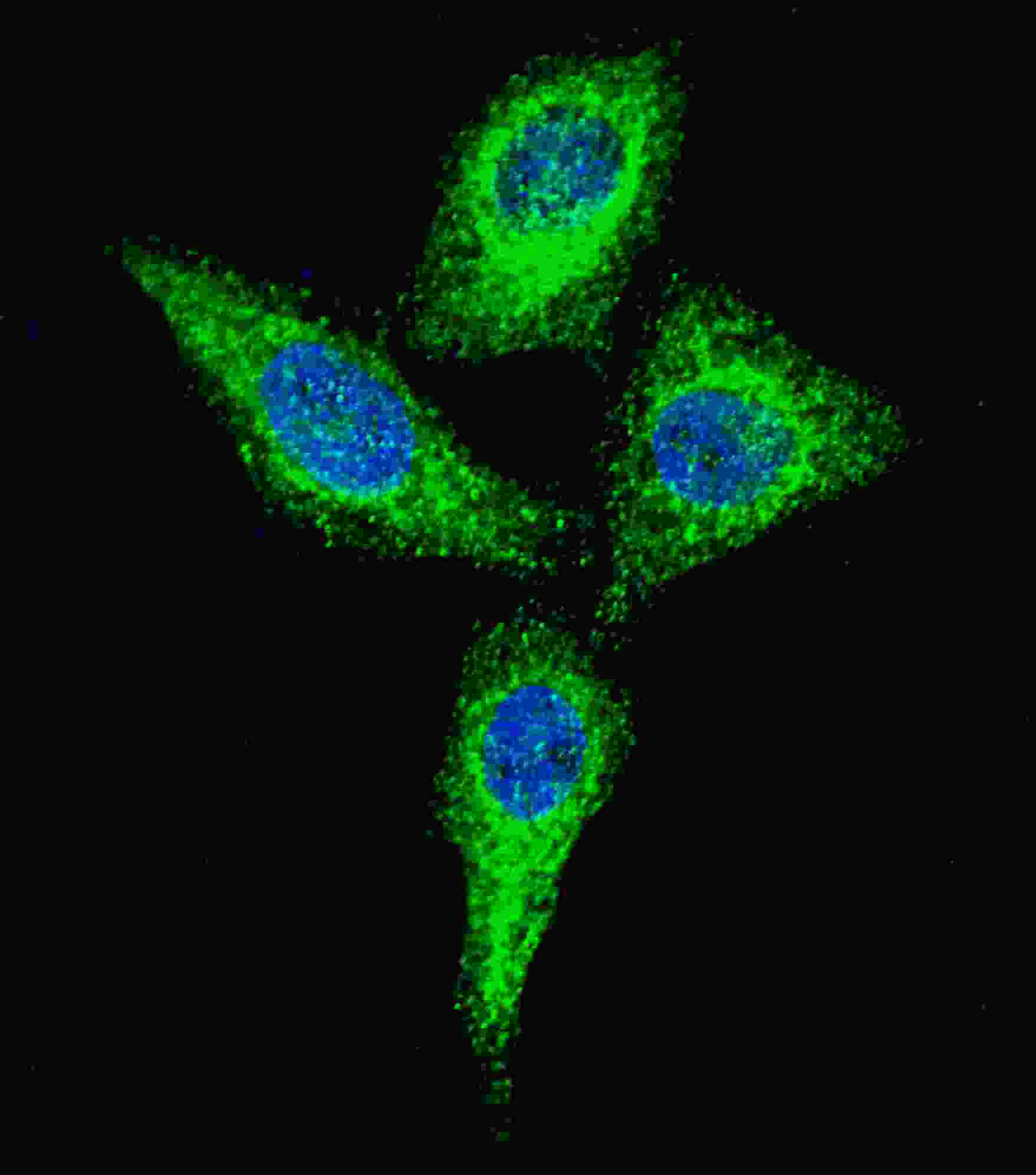
Fluorescent confocal image of HeLa cells stained with Alkaline Phosphatase (ALPI) (Center) antibody. HeLa cells were fixed with 4% PFA (20 min), permeabilized with Triton X-100 (0.2%, 30 min). Cells were then incubated with BD-PB4373 Alkaline Phosphatase (ALPI) (Center) primary antibody (1:100, 2 h at room temperature). For secondary antibody, Alexa Fluor? 488 conjugated donkey anti-rabbit antibody (green) was used (1:1000, 1h). Nuclei were counterstained with Hoechst 33342 (blue) (10 μg/ml, 5 min). Alkaline Phosphatase (ALPI) immunoreactivity is localized to the cytoplasm of HeLa cells.
相关文献
产品问答
相关产品

市场:027-65023363 行政/人事:027-62439686 邮箱:marketing@brainvta.com 客服:18140661572(活动咨询、售后反馈等)
销售总监:张经理 18995532642 华东区:陈经理 18013970337 华南区:王经理 13100653525 华中/西区:杨经理 18186518905 华北区:张经理 18893721749
地址:中国武汉东湖高新区光谷七路128号中科开物产业园1号楼
Copyright © 武汉枢密脑科学技术有限公司. All RIGHTS RESERVED.
鄂ICP备2021009124号 DIGITAL BY VTHINK